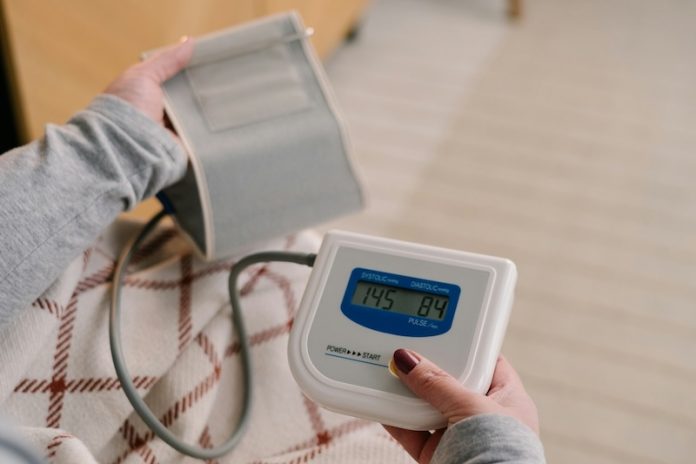
A new device that uses ultrasound waves may offer hope to people whose high blood pressure doesn’t improve with current treatments. This technology, still being tested in clinical trials, could be an important breakthrough for the millions of people who struggle to keep their blood pressure at a healthy level.
High blood pressure, also known as hypertension, is a very common condition. It puts extra pressure on blood vessels and organs, increasing the risk of heart disease, strokes, kidney failure, and other serious problems.
Many people can manage their blood pressure through lifestyle changes like eating healthy food, exercising regularly, and taking prescribed medications. But for about one-third of patients, these efforts are not enough.
That’s where this new device comes in. It works through a process called ultrasound renal denervation, which targets the kidneys. The kidneys play a big role in controlling blood pressure because they regulate salt and water in the body.
In some people, the nerves around the kidneys are too active, causing the body to hold onto more water and salt than it should. This makes blood pressure rise.
The ultrasound device is designed to calm those overactive nerves. It uses sound waves delivered through a small tube inserted into the blood vessels that lead to the kidneys. By reducing nerve activity, it helps lower blood pressure. Importantly, this procedure is minimally invasive, meaning it doesn’t require major surgery.
A recent study led by Dr. Ajay Kirtane at Columbia University combined the results of three separate clinical trials to see how well the device works. The trials included more than 500 people with high blood pressure. Some were already taking medicine, while others were not.
The results were encouraging. On average, people who received the ultrasound treatment saw their daytime blood pressure drop by 8.5 points. That might seem like a small number, but even a drop of a few points can greatly reduce the risk of heart attacks and strokes.
In fact, patients who received the treatment were twice as likely to reach their blood pressure goals compared to those who had a fake procedure used for comparison.
Better yet, the improvement was seen as early as one month after the treatment. These findings suggest the device could be a powerful tool, especially for people whose blood pressure remains high even after trying everything else.
The device hasn’t been approved yet by the U.S. Food and Drug Administration (FDA), but it is still being studied in clinical trials to ensure it’s safe and works well over the long term.
If it passes these tests, it could be added to the list of options doctors have for managing high blood pressure. It wouldn’t replace medications or healthy lifestyle habits, but it could be used alongside them to get better results.
Researchers are also exploring other ways to improve blood pressure treatment. Some studies suggest that eating only during certain hours of the day—known as early time-restricted eating—can help.
Others are looking at whether the time of day you take blood pressure medicine makes a difference. On top of that, diets rich in fruits, vegetables, and plant-based foods continue to be a key part of managing blood pressure.
All these efforts aim to give people more tools to protect their heart and kidneys, especially when traditional methods don’t work well enough.
This ultrasound-based procedure is still in the early stages, but the research so far—published in JAMA Cardiology—offers a hopeful new option for people facing the challenges of stubbornly high blood pressure. As science continues to move forward, new and better ways to care for our health are becoming more available, helping people live longer and healthier lives.
If you care about high blood pressure, please read studies about potatoes and high blood pressure, and top 10 choices for a blood pressure-friendly diet
For more information about high blood pressure, please see recent studies about impact of vitamins on high blood pressure you need to know, and the powerful link between high blood pressure and a potassium-rich diet.
Copyright © 2025 Knowridge Science Report. All rights reserved.



